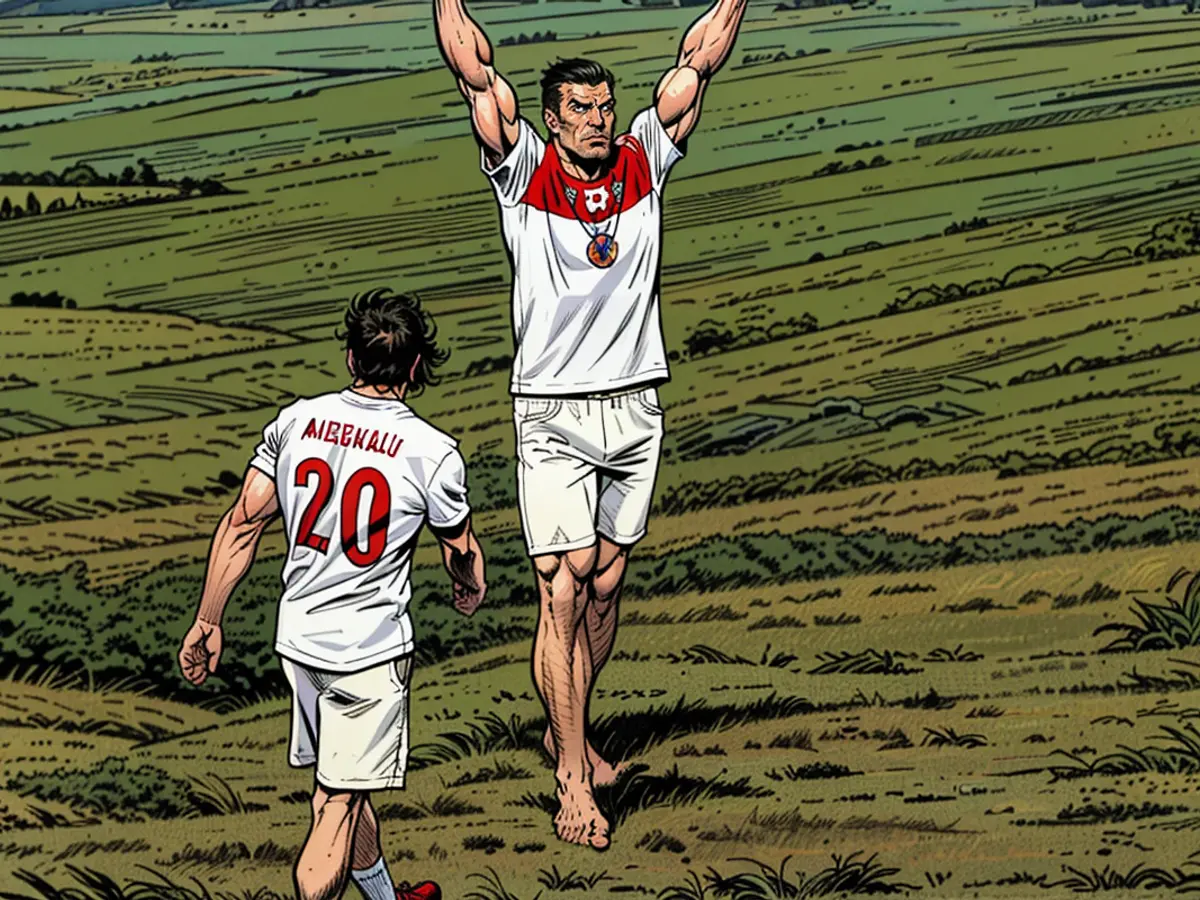European Football Championship - Media: Turkey appeals against Demiral ban to Cas
The Turkish Football Association TFF is reportedly appealing the two-match ban imposed on national team player Merih Demiral at the Court of Arbitration for Sport (CAS) regarding the Wolfsgruß gesture before international matches. TRT, a public broadcaster, reported that the association will file a appeal at CAS, where there is a expedited procedure specifically for the European Football Championship, with a likely decision by Friday evening.
UEFA suspended Demiral for two games. His absence in the EM quarterfinal against the Netherlands in Berlin on Saturday at 21:00 (RTL and Magenta TV) would mean he would miss the game, as well as a potential semifinal. The visit of Turkish President Recep Tayyip Erdogan is expected at the Olympiastadion for the match against Oranje.
Demiral violated "the general conduct principles, breached the fundamental rules of good conduct, misused sports events for non-sporting demonstrations, and brought football into disrepute," according to UEFA's statement.
What happened?
The 26-year-old Demiral formed the "Grey Wolves" hand gesture and symbol after scoring his second goal in the 2:1 quarterfinal win against Austria in Leipzig, causing widespread outrage. In Germany, the "Grey Wolves" are referred to as the supporters of the right-wing extremist "Grey Wolves Movement," which is monitored by the Federal Constitutional Court. In Turkey, the Nationalist Movement Party (MHP) is their political representation and alliance partner of the Islamo-conservative AKP of President Erdogan.
There has been intense political controversy surrounding the UEFA investigation against Demiral in recent days. The Turkish Foreign Ministry deemed the UEFA investigation against Demiral as unacceptable.
Not everyone who displays the Wolfsgruß gesture can be labeled as right-wing extremist. In Germany, the Wolfsgruß is not banned, and the reactions of German authorities are "xenophobic." In the context of growing nationalism, however, representatives of the political center have recently used the Wolfsgruß to appeal to voters from nationalist circles.
Turkish football ultras have invited fans in the Berlin Olympiastadion to display the controversial Wolfsgruß gesture during their team's quarterfinal against the Netherlands. All supporters on the tribune are invited to make the gesture during the national anthem, according to a call on the platform X.
- The Turkish Football Association (TFF) is challenging the two-match ban imposed on Merih Demiral at the International Court of Arbitration for Sport (CAS) in Berlin, with a potential decision by Friday evening.
- Demiral's absence due to the ban could impact Turkey's European Football Championship quarterfinal against the Netherlands on Saturday at 21:00, broadcast on RTL and Magenta TV.
- Demiral was suspended by UEFA for two games for violating conduct principles, breaching good conduct rules, misusing sports events for non-sporting demonstrations, and bringing football into disrepute.
- Demiral's violation involved forming the "Wolfsgruß" gesture, which has been associated with the right-wing extremist "Grey Wolves Movement" in Germany and is politically represented by the Nationalist Movement Party (MHP) in Turkey.
- There has been controversy surrounding the UEFA investigation into Demiral, with the Turkish Foreign Ministry labeling it as unacceptable.
- While not every display of the Wolfsgruß gesture can be classified as right-wing extremist, the symbol has been used by representatives of the political center in Germany to appeal to nationalist voters.
- Turkish football ultras have invited supporters to display the controversial Wolfsgruß gesture during the quarterfinal match against the Netherlands at the Berlin Olympiastadion.
- The invitation, posted on the platform X, calls for all supporters to make the gesture during the national anthem before the match.
- The Wolfsgruß gesture, also known as the "Wolf greeting," has become a point of contention in European soccer and politics, highlighting the complexities and tensions surrounding nationalism and identity in the modern sporting landscape.







